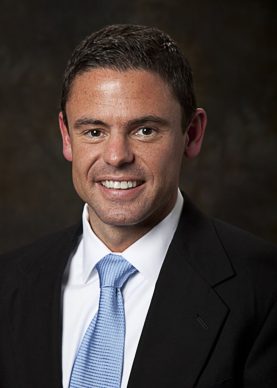Diagnosis and Treatment of Frozen Shoulder in Wake County

What is Frozen Shoulder?
Frozen shoulder (adhesive capsulitis) is a painful inflammatory condition in the shoulder joint that causes stiffness and loss of range of motion. The shoulder joint consists of three bones and strong connective tissue that surrounds it. The connective tissue is called the shoulder capsule. In a case of frozen shoulder, bands of tissue in the shoulder capsule become stiff, tight, and painful, restricting motion.
While a frozen shoulder can resolve on its own with rest and conservative treatment after months or years, medical intervention or surgery may be recommended in some cases.

What Causes Frozen Shoulder?
Certain risk factors might lead to the development of frozen shoulder.
- Age and sex – women over 40 are at a higher risk
- Immobility following surgery, an injury, or a condition like a stroke
- Rotator cuff disorders
- Diabetes (with a prevalence of up to 20 percent)
- Other diseases like thyroid disorders, cardiac disease, cancer, and Parkinson’s Disease
Symptoms of Frozen Shoulder
The symptoms of frozen shoulder tend to occur in three phases: the freezing period, the frozen period, and the thawing period. The early freezing period is predominated by pain, the frozen period is dominated by the loss of motion, and the thawing period sees a gradual improvement in symptoms. Symptoms experienced by those with this condition include:
- Pain
- Stiffness
- Loss of motion
- Loss of function
- Loss of strength
How is Frozen Shoulder Diagnosed?
A physical examination is usually sufficient to diagnose frozen shoulder. During the exam, the orthopedic provider will assess the active and passive range of motion in your shoulder. Diagnostic imaging is usually unnecessary, but X-rays and MRIs can help rule out other conditions.

Treatment for Frozen Shoulder in Wake County
Conservative management is the primary treatment for frozen shoulder, and 90 percent of cases will resolve without surgery within 12-18 months. If conservative management fails or the frozen shoulder is severe, your provider may recommend surgery.
Conservative treatments for frozen shoulder include physical therapy, stretching, ice, ultrasound, and NSAIDs. The goal of conservative treatment is to reduce inflammation in the shoulder capsule and restore motion. Your provider may also recommend steroid treatment to reduce inflammation, whether via a cortisone injection into the shoulder joint or oral prednisone.
If extended conservative treatment fails (usually at least six months) or the frozen shoulder is causing severe pain, your provider may recommend surgery.
During surgery for a frozen shoulder, your orthopedic provider will likely use a minimally invasive surgical technique to restore motion in the shoulder. Possible surgical procedures include manipulation under anesthesia or arthroscopic capsular release (adhesiolysis). During manipulation under anesthesia, the surgeon forces the shoulder to move to loosen the tightened muscles and cause the scar tissue to tear. During a capsular release, the surgeon will make a series of small incisions to release the scar tissue.

Frozen Shoulder Recovery Time
Recovery is slow for a frozen shoulder. With conservative management, it may take 1 to 3 years for symptoms to resolve. After surgery, your orthopedic provider will recommend several weeks of physical therapy, stretching, and strengthening exercises – including home exercise programs and supervised therapy. Post-surgical rehabilitation can take from 6 weeks to 9 months.
How Can I Prevent Frozen Shoulder?
As the cause of frozen shoulder is unclear, it is not always possible to prevent this condition. Orthopedic experts recommend moving and stretching your shoulders frequently to maintain range of motion and strength. If recovering from a shoulder injury or other condition, it’s important not to keep the shoulder immobile for too long, because this can lead to frozen shoulder.

Expert Shoulder Care at Raleigh Orthopaedic
Raleigh Orthopaedic offers comprehensive care for a variety of shoulder conditions, including frozen shoulder. Our experienced shoulder experts will diagnose your condition and work with you to form a personalized treatment plan. Contact us today or schedule an appointment online at one of our convenient clinic locations in Wake County, NC.







